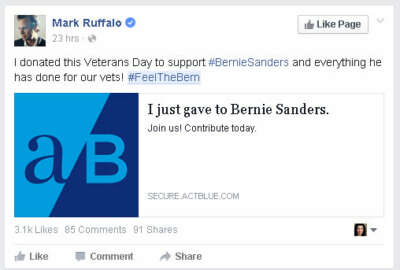
Keep politics out of the office to comply with Hatch Act
With only one more month left to go until the presidential election, the Office of Special Counsel wants to remind federal employees of a few Hatch Act guidelines...
Feds planning to live-tweet Tuesday’s vice presidential debate or email coworkers about donating to a candidate should keep a few things in mind before hitting “send.”
With only one more month left to go until the presidential election, the Office of Special Counsel wants to remind federal employees of a few Hatch Act guidelines meant to keep political activity out of the workplace.
Ana Galindo-Marrone, chief of the OSC’s Hatch Act unit, told the Federal Drive with Tom Temin that government workers, for the most part, can donate, volunteer or endorse candidates as readily as most private citizens, just as long as they do it on their own time.
“The Hatch Act is balanced against one’s First Amendment rights, the right to express one’s opinion. So as long as a federal employee is observing the rules and they’re speaking in their personal capacity, and they’re not at work, then they are free to express their opinions and be robust in their endorsement of candidates,” Galindo-Marrone said.
Compliance with the Hatch Act often comes down to common sense, but even agency leaders have run afoul of it.
In April, Housing and Urban Development Secretary Julian Castro violated the law when he endorsed Democratic candidate Hillary Clinton for President during an interview in his HUD office. The Hatch Act prohibits feds from using their official authority or government property to favor a political candidate.
While the White House announced that it wouldn’t punish Castro for the infraction, federal employees can be fired for infractions of the Hatch Act. In 2012, Congress amended the Hatch Act to broaden the penalties allowed under the law and lighten penalties for minor offenses.
Galindo-Marrone said under the law, most federal employees are:
- prohibited from political activity while on duty or in the federal workplace,
- prohibited from soliciting, accepting, receiving political contributions,
- prohibited from using their official authority or influence to affect the outcome of an election.
OSC recently dealt with a case in which a federal employee conducted political party business at work, invited co-workers to a party fundraiser and collected money for the fundraiser. Galindo-Marrone said the employee received a 50-day suspension without pay.
When it comes to political merchandise — like wearing an “I’m With Her” button or a “Make American Great Again” hat — Galindo-Marrone said feds enjoy the same freedoms as everyone else.
“When they’re off the clock and not in the workplace, a federal employee would be permitted to wear a campaign T-shirt, a campaign hat or display a campaign yard sign on their front lawn,” she said.
Members of federal employee unions, which usually endorse presidential candidates, have some wiggle room when it comes to soliciting political donations.
“Whereas every other federal employee has a 24/7 ban on soliciting for political contributions or accepting political contributions, union employees, if they’re off the clock, not on duty, may solicit other union members for the union’s PAC — as long as they’re not at work and they’re not soliciting subordinates,” Galindo-Marrone said.
Of course, there are some categories of federal employees, like law enforcement officers, members of the intelligence community, and members of the Senior Executive Service, who have more restrictive rules on political activity.
OSC Awards Its 2016 Public Servant of the Year
In other news, OSC recently honored Teresa Gilbert as its 2016 Public Servant of the Year. Gilbert, a civilian infection control analyst at Womack Army Medical Center in Fort Bragg, North Carolina, for calling attention to violations of infection control policies that put service members and their families at risk.
Copyright © 2025 Federal News Network. All rights reserved. This website is not intended for users located within the European Economic Area.
Jory Heckman is a reporter at Federal News Network covering U.S. Postal Service, IRS, big data and technology issues.
Follow @jheckmanWFED
Related Stories





